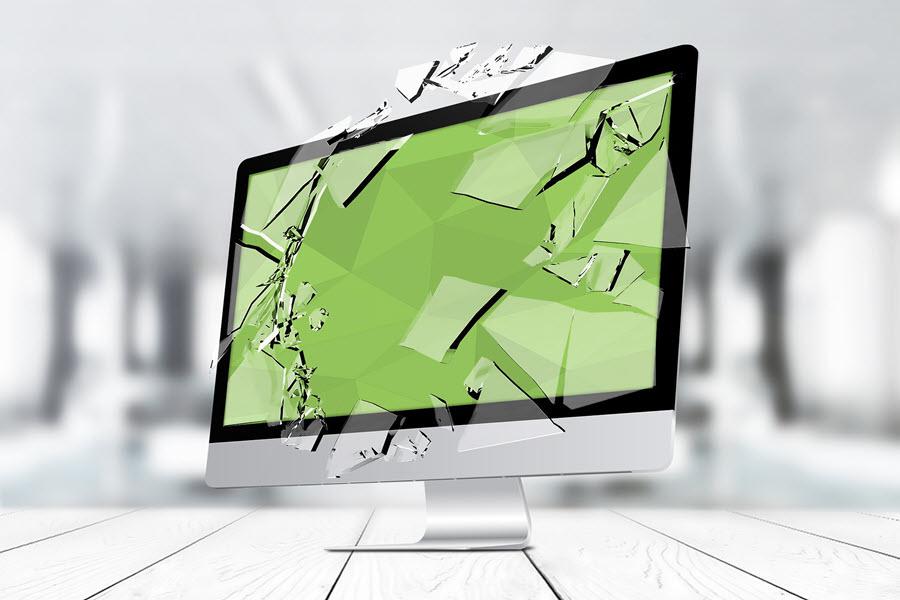14 Things You Should Avoid to Maintain Good Computer Health
Your computer might be one of the things that you value the most, but have you ever bothered about its maintenance. How many times have you taken out the menu to read instructions and other tips that can keep your computer in good condition?
Manuals are designed to give you an overview of the dos and don’ts. They give you an intro to the things that you should do to strengthen your computer’s performance and maintain its functioning for longer.
Similarly, it also gives you instructions about the things that can harm your computer and what precautions you should take to prevent your computer from being damaged. Let’s understand the various things and practices that can damage your computer and how you can prevent it.
Avoid Direct Exposure to Sunlight
Similar to other electronic and digital items, computers are vulnerable to liquids and heat. They cannot withstand the elements such as rays or water. Leaving the desktop or laptop on the surface with direct sunlight for longer can harm these devices.
Do Not Lift Laptop From Its Lid
The lid of the laptop is a delicate component, and carrying your laptop by holding its lid can break or damage it beyond repair. Doing this can also result in damaging the webcam, microphones, wireless cards, or straining the hinges.
Take Care of Maintenance
If you never spend time on your computer maintenance, the junk and cache will make it slower and sluggish over time. Removing redundant and temporary files from the computer is important for the smooth functioning of the device.
Use the Device Properly
Whenever an underage or untrained user is using the laptop, make sure to supervise the activities to avoid any huge damage. Laptops have major components integrated under the keyboard, so when a minor is using the device, make sure to remove any heavy elements from the surroundings or desk.
Ignore Low-Grade Accessories
Your computer is an asset to you, and in the current times, we are relying upon these delicate devices for work and income. So, make sure to use high-grade accessories and avoid connecting any unreliable peripherals that can cause damage to your computer.
Limit Time You Spend on a Computer
If you are using your laptop for completing a heavy-load project or you are running a resource-consuming app, make sure to restart your computer after small intervals, if possible. Prolonged usage can overheat the device, making it sluggish.
Disable Background Apps
Background apps eat up a large share of CPU and memory resources without you realizing the same. Some of these apps are redundant and do no good to your computer, so you should disable or delete these apps to improve your computer’s performance.
Do Not Download Heavy Programs
Large files that you download from the internet and store on the hard drive are the major productivity hogs. Make sure to clean your computer periodically using third-party cleaner tools. An app with a good user rating can clean app residues properly, such as the junk and the temporary files that come complimentary with each download.
Pay Attention to Warning Signs
If you ever notice an error message that indicates that you need to reboot the device or the hard drive storage is full, never ignore them. Follow the instructions and do every possible workaround to resolve the problem and prevent your computer from severe damage.
Instruct Pets to Stay Away
Your pets may like the warmth that the laptop emits when you are working on it and may lay on the keyboard or sit near the device. Do not encourage this habit as the tiny hair can get inside the device and block the air vents, leading to overheating.
Avoid Eating on Computer Desk
Your computer desk is not the place to have your meals, as the small food particles can damage the components badly. Similar to a pet’s hair, the food can also block the ventilation and result in overheating.
Clean Dust
Dust is your computer’s enemy. It can block the fan and stop the internal components from working smoothly. Although it’s important to remove the dust, make sure to do it delicately with a damp cloth and avoid using any harsh chemicals that can build up rust on inside elements in the long run.
Shut Down Computer the Right Way
Even if your computer freezes and is not responding to any input, you should wait for several minutes and never turn off the computer from the main socket. When it turns to a normal state, go to the Start menu to shut down or restart the computer properly.
Stick to Reliable Links
Installing apps from an unauthorized source on the internet can make your computer susceptible to security threats. Your computer may become a victim of virus attacks, so make sure to download files from trusted websites only.




